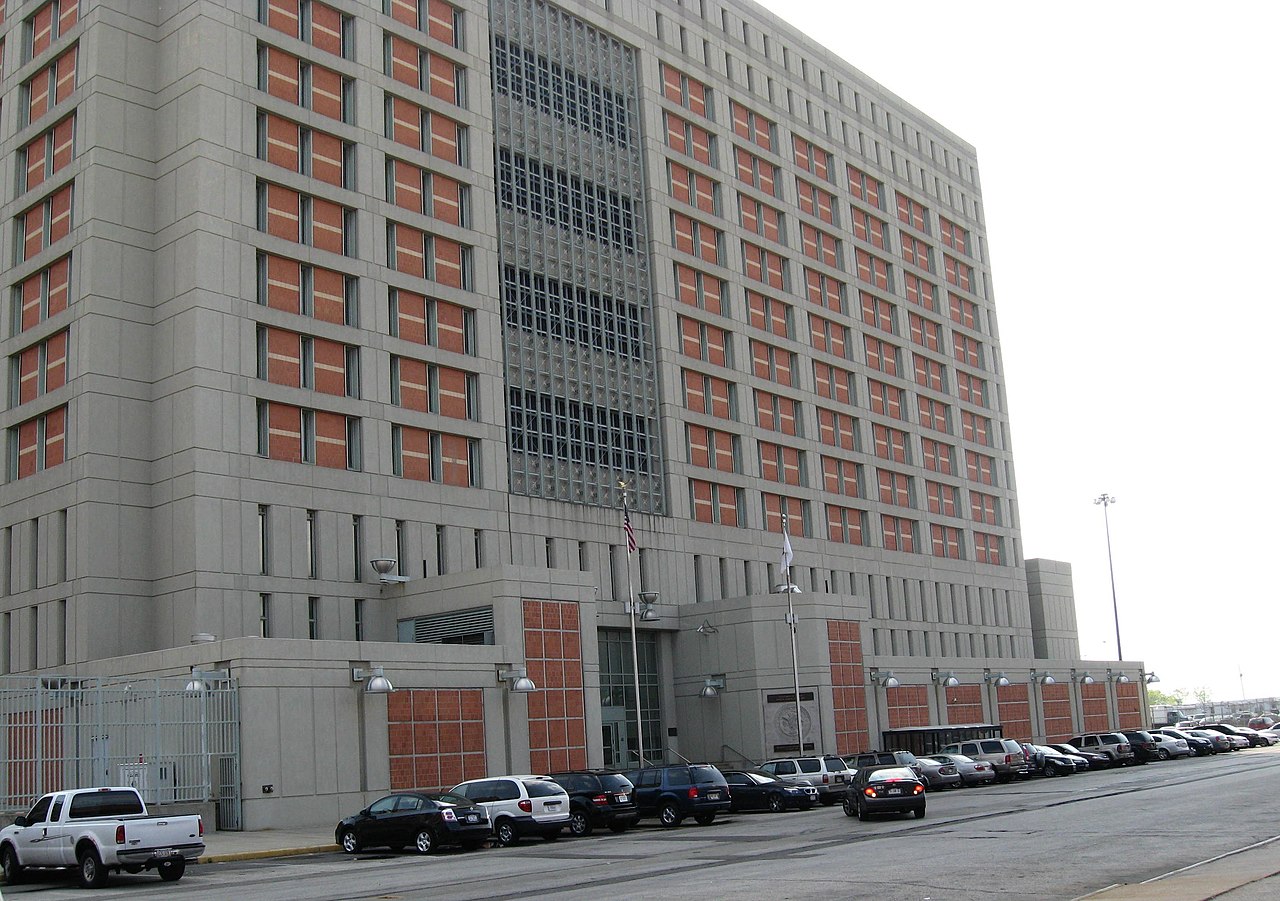The Metropolitan Detention Center (MDC), a federal facility in Sunset Park, Brooklyn, has a long history of neglect and abuse, which has only intensified during the pandemic.
In April 2020, a medical expert’s legal filing reported that MDC staff were destroying incarcerated people’s medical records to hide the facility’s true number of COVID-19 infections and its failure to provide adequate care. In June 2020, Jamel Floyd died of a heart attack after corrections officers pepper-sprayed him in his cell at MDC—sparking protests outside.
Most recently, MDC has been violating incarcerated people’s rights to communication with the outside world, causing obvious personal and practical harms.
MDC staff have been preventing incarcerated people from speaking to their friends and family, according to affected sources, by denying them phone and email access. Staff have also ignored outside pleas for information on the physical and mental well-being of loved ones inside.
Anne*, whose husband is incarcerated, explained that she hasn’t been able to visit him since he was moved to MDC in August 2020. The only communication Anne has had with him was through phone calls and emails, but in December all communication halted.
On December 1, Anne found out through a local support network for people with loved ones in MDC that someone confined to the same unit as her husband had tested positive for COVID.
Her husband was housed in Unit 73, which became the first isolation floor at MDC for COVID cases during the current outbreak, which began in late November. But while corrections officers (COs) were moving people who tested positive up to Unit 73, those who were in the unit prior to the outbreak had to remain there regardless of whether they tested positive or negative—meaning uninfected people were intentionally exposed to infected people.
That month, Felix Collazo, who was also held in Unit 73, was thrown into solitary confinement for speaking to the Daily News about inhumane conditions there.
The denial of phone access to people held at a federal facility directly contradicts a November 25 statement on the Bureau of Prisons website:
“The BOP recognizes the importance for inmates to maintain relationships with friends and family. During modified operations in response to COVID-19, the BOP suspended social visitation, however, inmates were afforded 500 (vs. 300) telephone minutes per month at no charge to help compensate for the suspension of social visits.”
Further, the BOP’s Admission and Orientation Handbook promises that incarcerated people have “the right to visit and correspond with family members and friends, and correspond with members of the news media …” Visits remain suspended even as the CDC permits non-contact visits.
There are currently 94 active COVID cases inside MDC (32 of which are staff), after there were 110 on December 27, according to the BOP website. As the facility struggles to get a handle on the current outbreak, family and friends of people inside are growing more worried every day.
The only way he was eventually able to inform his girlfriend of his diagnosis was by “threatening self-harm,” he told her.
Nadia, worried about the lack of correspondence with her boyfriend, asked someone at MDC in early December if they would inform her in the event that her boyfriend had COVID. To this question, she said, the staff member responded with a curt and dismissive “No.”
Shortly after, Nadia’s boyfriend, who was also housed in Unit 73, tested positive. The only way he was eventually able to inform his girlfriend by phone of his diagnosis was by “threatening self-harm,” he told her.
In their phone conversation, he also revealed that he had been having symptoms of COVID-19 for a full week before he received medical attention. At one point, Nadia related, his symptoms had gotten so bad that his “blood pressure was through the roof (167/112), causing him to have stroke-like symptoms.” And after he was finally tested and diagnosed, officers moved another incarcerated person who had tested negative for COVID into the same cell.
The communication blackout doesn’t only apply to loved ones. People incarcerated at MDC are also unable to receive legal aid because of cut access to phones, even as the BOP Handbook promises that prisoners “have the right to legal counsel from an attorney of your choice by interviews and correspondence.” According to Nadia, her boyfriend’s lawyer had been reaching out to MDC to schedule a call with their client, but MDC did not get back to them.
Sunset Park Popular Assembly is a local organization, of which we are members, that advocates for prisoners inside MDC. After several months of regular messages between activists and prisoners, we suddenly received not a single text between December 9-24, just as reports emerged of mounting COVID cases inside the prison.
On December 16, Anne received an email from her husband stating that he no longer had phone access. On December 24, Assembly members received a message from another incarcerated man, a regular contact, stating that he had wanted to message, but had not been able to, because he was only able to leave his cell three times a week for a 10-minute shower. On the same day, another contact messaged that there were over 300 cases in the prison.
According to contacts inside MDC, people in the general population can currently leave their cells for 30 minutes three-to-five times a week—which, given shower time and the limited number of phones, still amounts to much less than the BOP’s promised 500 minutes of phone time per month.
Sunset Park Popular Assembly demands that MDC establish a direct line to the warden for family and friends to perform wellness checks on their loved ones. In the past several weeks, we have organized call-in campaigns with demands to allow unlimited phone access, to restore in-person visits, and to notify family if their loved one inside gets sick.
Callers have never been able to reach the warden, and the operators, when they pick up, are unresponsive and unhelpful—often hanging up or forwarding the caller to a voicemail box.
On Christmas Day, according to Anne, people incarcerated at MDC reported that they were not allowed phone calls home because the facility was “short of staff.” A group of people in one unit then staged a hunger strike that won them access again, although it is not daily and depends on the officer on duty.
“Inmates feel like they’ll never see their families again, and barely get to hear our voices.”
The first week of January reportedly saw a total lockdown at MDC, the cause of which is still unknown. It lasted four days, during which family members once again had no way of reaching loved ones inside.
After the lockdown was lifted, Barbara, whose son is incarcerated at MDC, reported that psychiatric check-ins had occurred during the time she was unable to speak to her son. She said her son was informed that the psychiatric evaluations were in response to the recent suicide of an incarcerated man named Kenneth Houck. That claim was perplexing, as Kenneth Houck actually took his own life in May 2020, eight months earlier.
While the real reason for the covert psychiatric visits during a total lockdown remains a troubling mystery, the fact that incarcerated people don’t have continual access to psychiatric help during a pandemic is frightful and inhumane.
At publication time, there has been no further reported improvement in phone access. There is also limited access to commissary—a contact inside reports that COs claim that commissary is empty—which makes it difficult for incarcerated people to obtain stamps and envelopes to send letters to loved ones and pen-pals.
“This whole situation is unfortunate considering MDC is supposed to be accommodating things such as calls home and computer time for their mental health, but instead COs are scared to even go on the COVID unit floors,” said Anne. “Inmates feel like they’ll never see their families again, and barely get to hear our voices.”
*Names of people whose loved ones are incarcerated have been changed to protect their privacy.
Photograph of MDC via Wikimedia Commons/Public Domain






Show Comments